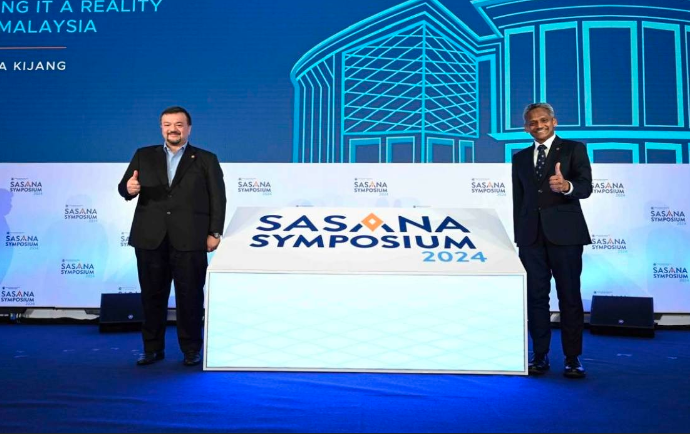MALAYSIA'S ECONOMY TO GROW 4-5% IN 2024, AIDED BY EXPORT RECOVERY, DOMESTIC DEMAND - AMIR HAMZAH

The Malaysian economy is projected to grow between 4% and 5% in 2024, supported by export recovery and resilient domestic demand, said Finance Minister II Datuk Seri Amir Hamzah Azizan.
He said trade recovery will be underpinned by the global technology upcycle and further recovery in tourism activity.
“Household spending would be underpinned by improving income and employment.
“Investment activities will be driven by further progress of multi-year investment projects by both the public and private sectors,” he said in his keynote address at Bank Negara Malaysia's Sasana Symposium 2024.
He also said that the implementation of catalytic initiatives under various master plans, such as the National Energy Transition Roadmap (NETR), New Industrial Master Plan 2030 (NIMP 2030) and the Twelfth Malaysia Plan, would further boost investment.
Hence, Amir Hamzah said the government is committed to delivering a meaningful structural reform because this is necessary to build a more prosperous and inclusive Malaysia.
In this regard, he noted that parallel multi-pronged strategic reforms are being pursued to support this endeavour.
“First, to raise the floor by creating more fiscal space and making the economic pie bigger for more participation. Second, to raise the ceiling by enhancing social protection and third, to put in place good governance,” he said.
He also said that the Public Finance and Fiscal Responsibility Act (FRA) and the Medium-Term Fiscal Framework (MTFF) are crucial measures to broaden and diversify the revenue base.
Besides that, he said that Malaysia is well-positioned to benefit from the reconfiguration of global value chains.
“To make the most of this opportunity, we prioritise policies to attract high-quality investments that boost our economic competitiveness and create high-value jobs,” he said.
Hence, by advancing these structural reforms, Malaysia will enhance its global competitiveness relative to other nations that are also rapidly working to bolster their growth potential, address fiscal deficits and improve resource efficiencies, he added.
